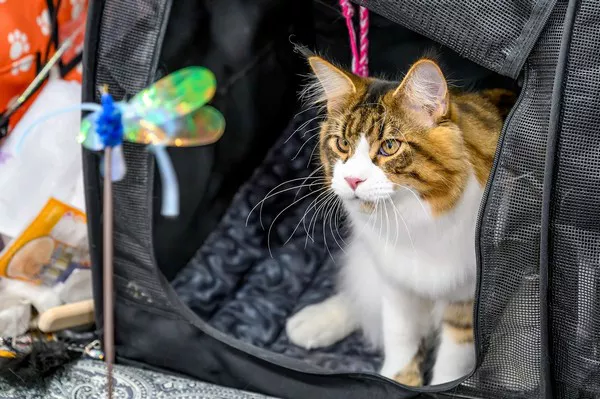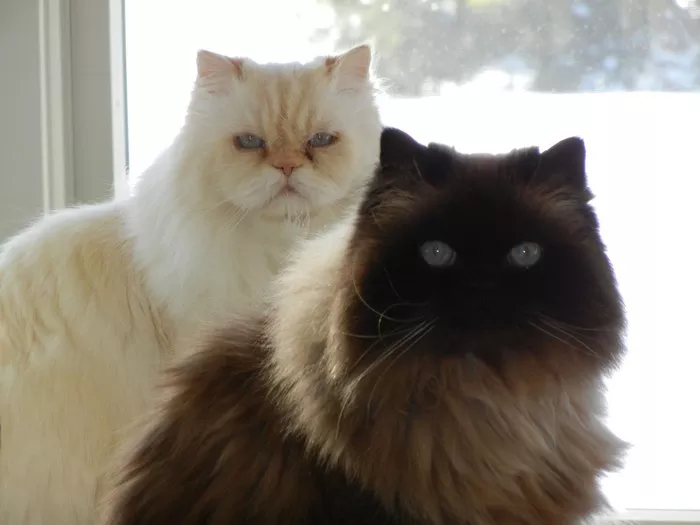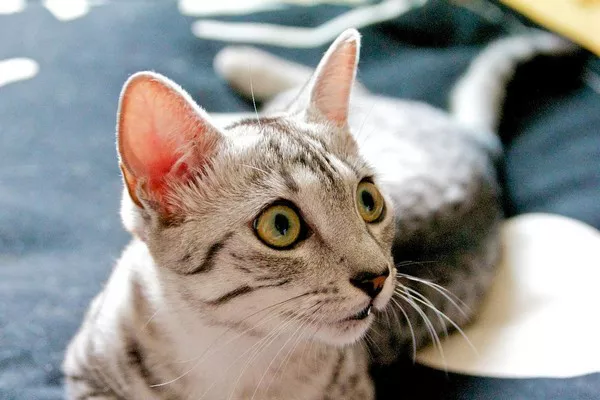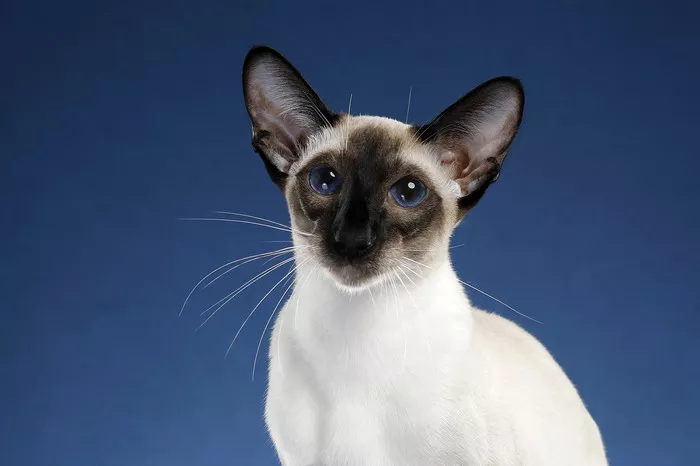When it comes to choosing the best cat breed for you, several lifestyle factors should be taken into account to ensure a harmonious match between you and your feline companion.
Living Space: Consider whether you reside in an apartment or a house and whether your cat will have access to the outdoors or remain strictly indoors. Some breeds are better suited to apartment living and can thrive without outdoor access, while others may require more space to roam and explore.
Time Commitment: Evaluate your available time for playtime, grooming, and general care. Some cat breeds are more independent and require minimal grooming and attention, while others crave companionship and thrive on interactive play sessions.
Activity Level: Determine whether you prefer an active, playful cat that enjoys games and exercise or a more relaxed, laid-back companion that enjoys lounging and cuddling.
Family and Pets: If you have children, other cats, or pets in the household, consider the compatibility of different cat breeds with your existing family dynamic. Some breeds are known for their gentle and tolerant nature around children and other animals, while others may be more reserved or territorial.
Allergies: For individuals with allergies, it’s essential to research hypoallergenic cat breeds that produce fewer allergens and are less likely to trigger allergic reactions.
Cat Breed Profiles
Now, let’s explore some popular cat breeds and their unique characteristics to help you find the perfect match:
Persian
Personality and Temperament: Persians are known for their calm and gentle demeanor, making them ideal lap cats and companions for quiet households.
Grooming Needs: Their long, luxurious coats require daily grooming to prevent mats and tangles.
Activity Level: Persians are generally low-energy cats and prefer lounging indoors to outdoor adventures.
Health Concerns: They are prone to respiratory issues and eye problems due to their flat faces and brachycephalic skull structure.
Maine Coon
Personality and Temperament: Maine Coons are friendly, affectionate, and highly sociable cats known for their playful and outgoing nature.
Grooming Needs: Their thick, water-repellent coats require regular brushing to prevent matting and reduce shedding.
Activity Level: Maine Coons are active and intelligent cats that enjoy interactive play and mental stimulation.
Health Concerns: They may be predisposed to certain genetic conditions, including hypertrophic cardiomyopathy (HCM) and hip dysplasia.
Siamese
Personality and Temperament: Siamese cats are vocal, curious, and highly social animals that form strong bonds with their owners.
Grooming Needs: Their short, sleek coats are low-maintenance and require minimal grooming.
Activity Level: Siamese cats are energetic and playful, often engaging in interactive games and exploring their surroundings.
Health Concerns: They may be susceptible to dental issues and respiratory problems due to their brachycephalic skull shape.
Sphynx
Personality and Temperament: Sphynx cats are affectionate, outgoing, and attention-seeking, often described as “dog-like” in their behavior.
Grooming Needs: Despite their lack of fur, Sphynx cats require regular bathing to remove excess oils and dirt from their skin.
Activity Level: Sphynx cats are active and playful, enjoying interactive toys and games with their owners.
Health Concerns: They may be prone to skin issues and temperature regulation problems due to their hairless bodies.
Bengal
Personality and Temperament: Bengals are intelligent, energetic, and highly active cats that enjoy interactive play and mental stimulation.
Grooming Needs: Their short, dense coats are easy to maintain with weekly brushing to reduce shedding.
Activity Level: Bengals thrive on physical activity and may require ample space to run, climb, and play.
Health Concerns: They may have a predisposition to certain genetic conditions, including hypertrophic cardiomyopathy (HCM) and progressive retinal atrophy (PRA).
Additional Resources
Adoption Information: Consider adopting a cat from a local animal shelter or rescue organization. These facilities often have a variety of breeds and mixed-breed cats in need of loving homes.
Cat Care Tips: Familiarize yourself with basic cat care, including proper nutrition, grooming techniques, and litter box maintenance, to ensure your cat’s health and well-being.
Links to Breed-Specific Resources: Explore breed-specific websites, forums, and social media groups to connect with other cat owners and enthusiasts and learn more about specific breeds’ characteristics and care requirements.
In conclusion, choosing the best cat breed for you involves considering your lifestyle, preferences, and the unique characteristics of different breeds. By taking the time to research and understand each breed’s personality, grooming needs, activity level, and health concerns, you can find the perfect feline companion to enrich your life and bring joy to your home.



























